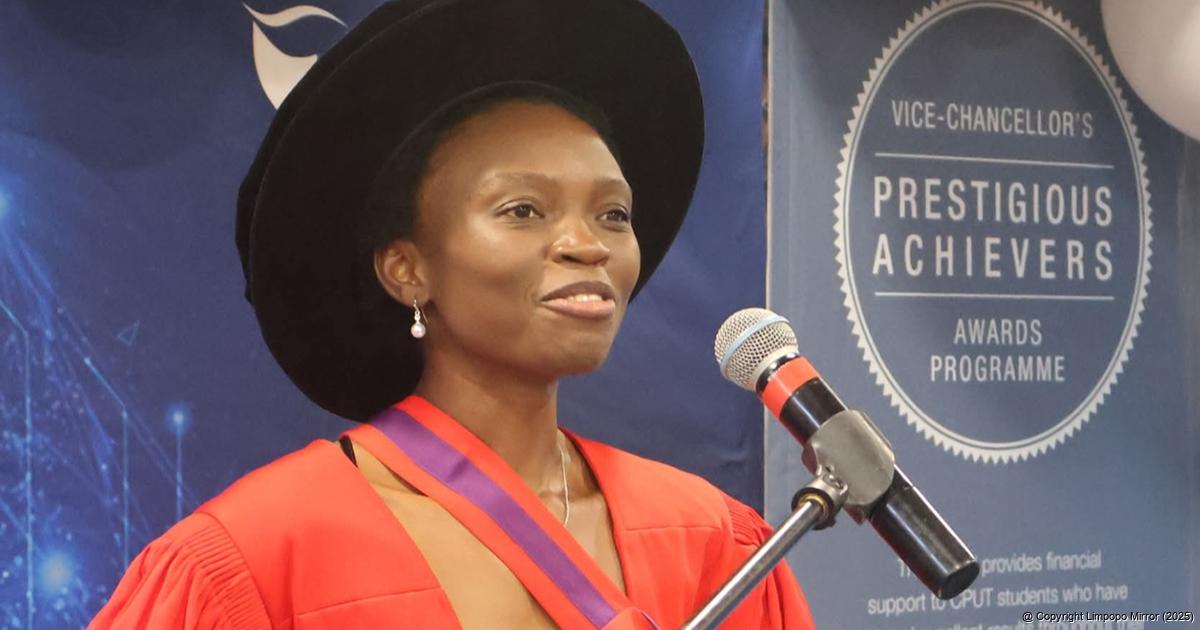Dr Murendeni Nethengwe Khubana from Maniini, near Thohoyandou, recently received her PhD in biomedical science. Photo supplied.
For Dr Murendeni Nethengwe Khubana from Maniini, near Thohoyandou, the path to her PhD began long before she entered a laboratory — it started at home, surrounded by the natural remedies of her childhood.
“I grew up where traditional medicine is widely used,” she said. “My mother always prepared and sold herbal products. Watching her sparked my curiosity about how plants can heal.”
That early exposure to indigenous healing ultimately inspired her academic journey at the Cape Peninsula University of Technology (CPUT), where she earned a Doctor of Philosophy in biomedical science. Her thesis explored how compounds found in Senna plants might assist in managing diabetes‑related male infertility.
For Dr Khubana, the work was deeply personal. “I wanted to prove that traditional medicine can be scientifically tested and trusted,” she explained. “Our communities have always relied on nature for healing, and I wanted to bridge that wisdom with modern science.”
Her journey was not without challenges. Balancing her studies, family responsibilities and personal struggles pushed her to the edge. “There were times I felt like giving up,” she admitted. “But I remembered where I came from and why I started. I wanted to make my family and my community proud.”
Dr Khubana is currently doing postdoctoral research at the Nuclear Medicine Research Infrastructure (NMRI) at Steve Biko Academic Hospital, but she continues to apply her scientific knowledge in a clinical setting while remaining passionate about promoting the responsible use of natural remedies.
“Nature has always been my classroom,” she said. “If we respect what the earth gives us, we can find answers to many of today’s health problems.”
“I’m just a girl from Maniini who followed her curiosity,” she added softly. “And that curiosity led me all the way here.”
[The article was edited to include Dr Khubana’s current place of work.)


